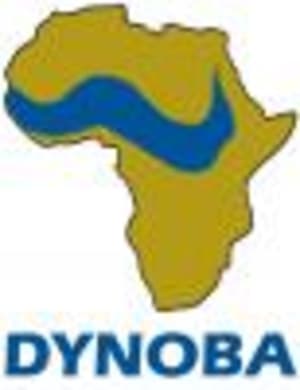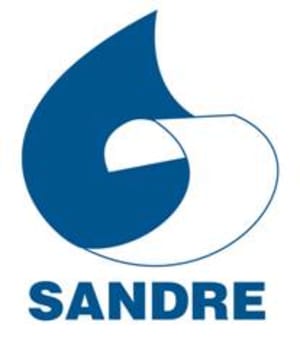World Water Forum 2024: Innovation in data production for efficient water management

In a world that is constantly evolving in terms of new technologies, profound changes continue to take place in the field of data and information. Since its creation, OiEau, an association working for better water governance, has been developing expertise in the production, use and development of water data and information systems.
The production and processing of data is essential for an effective water policy, and information systems can be used to support technical, strategic, operational and political decision-making.
As part of the 10th World Water Forum, devoted to the theme of "water for shared prosperity", OiEau coordinated the organisation of sessions on the theme of "strengthening water information systems", which addressed the subjects of innovation, data sharing and governance, and the use of data to serve science and decision-making.
Innovation in data production
Data production requires an innovative approach, in particular to reduce costs and strengthen production processes in areas and stakeholders that currently have low data densities.
Implementing innovative methods can provide additional data while reducing production costs and strengthening data sharing processes and collaborative data management, thereby enhancing the capacity for data-driven water resources management. This approach is essential for improving decision-making processes, operational efficiency and the effective communication of public information and scientific results.
Innovative methods need to be explored and developed, such as :
- The exploitation of remote sensing and the use of automated monitoring sensors. Whether for quantitative aspects (water levels, evaporation, etc.), for monitoring the quality of water resources, or for monitoring uses, satellites now provide very useful additional data. OiEau is very involved in these issues, as it has been leading a working group on spatial hydrology since 2014 and has been a partner since 2016 in a project to prepare SWOT applied to the Congo River basin, for example. OiEau has also implemented the FASEP M.A.R.U (Monitoramento das Águas Residuais urbanas e do seu Impacto Ambiental) project from 2021 to the end of 2023, using satellite imagery to improve monitoring of the impact of urban wastewater discharges in two priority river basins in Brazil.
- Integrating multiple data sources.Whatever the country, effective management of water resources requires data not only on water resources, quantity, quality, surface water and groundwater, but also on infrastructure, users and uses. Recent projects developed by OiEau on transboundary basins (Dynoba) or at national level (Bolivia, Laos, etc.) show that it is possible to strengthen the sharing and integration of multiple data generated by various institutions, while building on what already exists and developing win-win procedures between stakeholders.
- Stimulating data sharing and governance. InnWaterand Govaqua, new European projects in which OiEau is involved, aim to evaluate and compare innovative approaches and modes of governanceto support and accelerate a transition towards sustainable and equitable water use in Europe, in particular through governance platforms.
Data sharing is essential for cross-cutting water management solutions
Water data management requires an integrated and collaborative approach, with an emphasis on sharing data across administrative boundaries, sectors and systems. This circular, catchment-based approach aims to foster effective collaboration and maximise data interoperability.
Cooperation between institutions at different levels (basin, national, regional, international) could help to optimise the use of new resources, for example by optimising the complementarity of remote sensing with in situ monitoring, and to develop new approaches such as the Digital Twin Environment to water resource management, thereby reinforcing the already existing positive return on investment generated by the scaling-up of water information systems.
To achieve this, it is essential to develop robust collaboration frameworks, establish common data languages and put in place interoperable processes, i.e. that work with others without restrictions on access or implementation. As Paul Haener, project manager for Water Information Systems (WIS) developed internationally by OiEau, explains, this approach is supported by our association and is a real decision-making tool.
Furthermore, it is essential to convert data into usable information in order to extend its usefulness and strengthen decision-making capacities in the sustainable management of water resources.
Transforming and improving data into information and services for decision-making and for informing partners and the public
This transformation is essential for understanding trends and potential future scenarios in water management.
Data processing tools play a crucial role in this process. They can be coupled with artificial intelligence tools to provide in-depth analyses and accurate projections. To make it easier for stakeholders to access and interpret the data, it is necessary to develop user-friendly interfaces and intuitive visualisation tools. In addition, the information obtained must be adapted to the specific needs of users, using appropriate display modes and communication media.
OiEau has developed an approach aimed at networking the players who produce data in order to share information while building on their existing information systems. It is based on the method applied in France within the framework of the National Administration Service for Water Data and Reference Systems (SANDRE), for which OiEau provides the technical secretariat.
These efforts are converging to improve the management of water resources, thereby strengthening resilience in the face of water-related challenges. OiEau, an association recognised as being of public utility for over 30 years, mobilises its expertise to enable better-informed decisions and promote sustainable water use.
Find out more about the sessions organised by OiEau on Data and IES
Tuesday 21st May
- 10.20-11.50: Session 6D1 - Innovating data production 13:00-14:30: Session 6D2 - Strengthening data sharing and governance
- 14:50-16:20: Session 6D3 - Transforming and improving data into information for science and digital decision-making
- 16.40-18.10: HLP20 - Water information systems
Friday 24th May
- 8.30-10.00: Summary of session 6D - Water information systems




